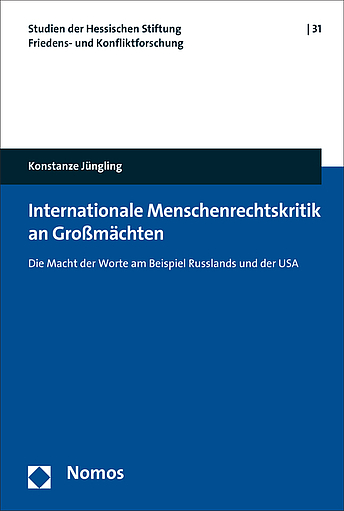englischGreat powers have been considered to be comparatively resistant against international human rights pressures. At the same time, they do not always seem to brush aside international criticism easily. Nevertheless, a systematic comparative study into the effects and success conditions of international human rights criticism remains to be undertaken to date.
Using the examples of two interview-based case studies – the Russian human rights violations in Chechnya and U.S. norm violations in the “war on terror” –, the author shows that great powers are socially vulnerable to international human rights criticism. Such criticism poses a threat to their power and identity as a so-called legitimate great power. For criticism to be successful, the characteristics of criticism, the senders and addressees of criticism as well as its interplay with domestic pressures turn out to be crucial. With its focus the study provides insights into promising strategies of dealing with powerful states.
Großmächte gelten als vergleichsweise resistent gegenüber internationalem Menschenrechtsdruck. Allerdings scheint Kritik an diesen Staaten keineswegs ungehört abzuprallen. Nichtsdestotrotz ist eine systematisch-vergleichende Auseinandersetzung mit der Wirkung und den Erfolgsbedingungen internationaler Menschenrechtskritik im Falle mächtiger Staaten ausgeblieben.
Anhand von zwei interviewgestützten Fallstudien – den russischen Menschenrechtsverletzungen in Tschetschenien sowie den US-Normverstößen im „Krieg gegen den Terror“ – zeigt die Autorin, dass Großmächte sozial verwundbar für internationale Menschenrechtskritik sind. Diese stellt einen Angriff auf deren Macht und Identität als sogenannte legitime Großmacht dar. Für den Erfolg von Kritik sind die spezifischen Charakteristika der Kritik, der Kritiksender und -adressaten sowie deren Zusammenspiel mit internem Druck entscheidend. Durch ihren Fokus liefert die Studie Einsichten über einen möglichen Umgang mit mächtigen Regelbrechern.


